Alberta
Watch: Province advising all large gatherings (over 250 people) in Alberta to cancel until further notice

Update on COVID-19 in Alberta
Alberta is adopting aggressive new public health measures to help limit the spread of the novel coronavirus, officially known as COVID-19.
Effective immediately, the Alberta government is asking all large gatherings or international events in the province to be cancelled and advising Albertans against travel outside of the country.
Four new cases of COVID-19 have now been confirmed in Alberta, bringing the total number in the province to 23, all travel-related. One patient continues to recover in hospital, while all others are in isolation at home.
“We are doing everything possible to limit the spread of COVID-19 in our province. The virus is spreading rapidly and is now a global threat. We are implementing these new measures to slow its spread and limit the risks in the weeks ahead. Protecting the health of Albertans is, and always will be, our top priority.”
“The coming weeks are vital in our fight to protect Alberta from COVID-19. These are serious steps, and ones we do not take lightly. I am calling on every Albertan and organization to assist our public health efforts and do their very best to comply with the public health guidance. It is critical that Albertans come together to do our part in keeping Albertans healthy and safe.”
New public health restrictions
Alberta is asking organizers to cancel any events that have more than 250 attendees. This includes large sporting events, conferences and community events. It does not extend to places of worship, grocery stores, airports or shopping centres.
Any event that has more than 50 attendees and expects to have international participants, or involves critical infrastructure staff, seniors, or other high-risk populations should also be cancelled.
Events that do not meet these criteria can proceed, but risk mitigation must be in place, such as sanitizer stations and distancing between attendees.
At this time, schools and daycares can remain open but steps should be taken to ensure that no more than 250 individuals are in the same room at any given time.
Travel outside of the country is not being recommended at this time. Given the rapid global spread of the virus, it is no longer possible to assess health risks for the duration of the trip.
New cases of COVID-19
Four additional cases of COVID-19 have been confirmed in the province. One of the confirmed cases is a two-year-old child from the Calgary zone who is now recovering at home.
The child who has tested positive for COVID-19 returned with their family from a vacation in Florida and developed mild symptoms once in Alberta. The child attended a local daycare from March 2-6 and tested positive on March 11.
The child is expected to make a full recovery.
As soon as the case tested positive, health officials took immediate action to protect the health of Albertans. On the advice of Alberta Health Services, the daycare has temporarily closed to limit exposure to the virus. All close contacts are self-isolating for 14 days while being monitored by health officials.
Any Albertan who has not been contacted directly by Alberta Health Services is not at risk.
The other three newly confirmed cases involve a woman in her thirties, a male in his fifties, and a woman in her seventies. They are all from the Calgary zone.
The travellers returned from travelling in Jordan, Egypt, France, Germany, and the United States, specifically Florida.
All Albertans are encouraged to visit alberta.ca/COVID19 for the latest information, guidance and resources.
Alberta
It’s On! Alberta Challenging Liberals Unconstitutional and Destructive Net-Zero Legislation
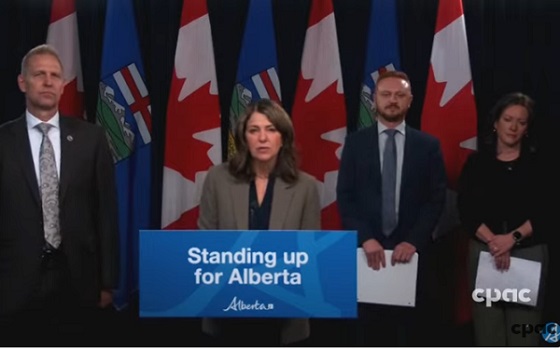
“If Ottawa had it’s way Albertans would be left to freeze in the dark”
The ineffective federal net-zero electricity regulations will not reduce emissions or benefit Albertans but will increase costs and lead to supply shortages.
The risk of power outages during a hot summer or the depths of harsh winter cold snaps, are not unrealistic outcomes if these regulations are implemented. According to the Alberta Electric System Operator’s analysis, the regulations in question would make Alberta’s electricity system more than 100 times less reliable than the province’s supply adequacy standard. Albertans expect their electricity to remain affordable and reliable, but implementation of these regulations could increase costs by a staggering 35 per cent.
Canada’s constitution is clear. Provinces have exclusive jurisdiction over the development, conservation and management of sites and facilities in the province for the generation and production of electrical energy. That is why Alberta’s government is referring the constitutionality of the federal government’s recent net-zero electricity regulations to the Court of Appeal of Alberta.
“The federal government refused to work collaboratively or listen to Canadians while developing these regulations. The results are ineffective, unachievable and irresponsible, and place Albertans’ livelihoods – and more importantly, lives – at significant risk. Our government will not accept unconstitutional net-zero regulations that leave Albertans vulnerable to blackouts in the middle of summer and winter when they need electricity the most.”
“The introduction of the Clean Electricity Regulations in Alberta by the federal government is another example of dangerous federal overreach. These regulations will create unpredictable power outages in the months when Albertans need reliable energy the most. They will also cause power prices to soar in Alberta, which will hit our vulnerable the hardest.”
Finalized in December 2024, the federal electricity regulations impose strict carbon limits on fossil fuel power, in an attempt to force a net-zero grid, an unachievable target given current technology and infrastructure. The reliance on unproven technologies makes it almost impossible to operate natural gas plants without costly upgrades, threatening investment, grid reliability, and Alberta’s energy security.
“Ottawa’s electricity regulations will leave Albertans in the dark. They aren’t about reducing emissions – they are unconstitutional, ideological activist policies based on standards that can’t be met and technology that doesn’t exist. It will drive away investment and punish businesses, provinces and families for using natural gas for reliable, dispatchable power. We will not put families at risk from safety and affordability impacts – rationing power during the coldest days of the year – and we will continue to stand up for Albertans.”
“Albertans depend on electricity to provide for their families, power their businesses and pursue their dreams. The federal government’s Clean Electricity Regulations threaten both the affordability and reliability of our power grid, and we will not stand by as these regulations put the well-being of Albertans at risk.”
Related information
- Conference Board of Canada socio-economic Impacts of Canada’s 2030 Emissions Reduction Plan – (April 2025)
- Alberta Electric System Operator’s position on Canadian Energy Regulations
Alberta
Alberta’s future in Canada depends on Carney’s greatest fear: Trump or Climate Change
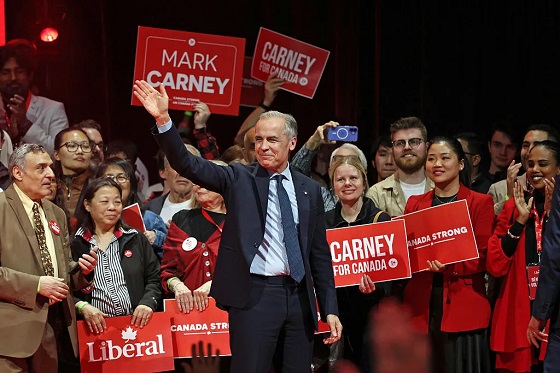
Oh, Canada
We find it endlessly fascinating that most Canadians believe they live in a representative democracy, where aspiring candidates engage in authentic politicking to earn their place in office. So accustomed are Canada’s power brokers to getting their way, they rarely bother to cover their tracks. A careful reading of the notoriously pliant Canadian press makes anticipating future events in the country surprisingly straightforward.
Back in December, when Pierre Poilievre was given better than 90% odds of replacing Prime Minister Justin Trudeau—and Mark Carney was still just an uncharismatic banker few had heard of—we engaged in some not-so-speculative dot-connecting and correctly predicted Carney’s rise to the top spot. Our interest was driven by the notoriously rocky relationship between Ottawa and the Province of Alberta, home to one of the world’s largest hydrocarbon reserves, and how Carney’s rise might be a catalyst for resetting Canada’s energy trajectory. In a follow-up article titled “The Fix Is In,” we laid out a few more predictions:
“Here’s how the play is likely to unfold in the weeks and months ahead: Carney will be elected Prime Minister on April 28 by a comfortable margin; [Alberta Premier Danielle] Smith will trigger a constitutional crisis, providing cover for Carney to strike a grand bargain that finally resolves longstanding tensions between the provinces and Ottawa; and large infrastructure permitting reform will fall into place. Protests against these developments will be surprisingly muted, and those who do take to the streets will be largely ignored by the media. The entire effort will be wrapped in a thicket of patriotism, with Trump portrayed as a threat even greater than climate change itself. References to carbon emissions will slowly fade…
In parallel, we expect Trump and Carney to swiftly strike a favorable deal on tariffs, padding the latter’s bona fides just as his political capital will be most needed.”
The votes have barely been counted, yet the next moves are already unfolding…
“Alberta Premier Danielle Smith says she’ll make it easier for citizens to initiate a referendum on the province’s future in Canada, after warning that a Liberal win in Monday’s election could spur a groundswell of support for Alberta separatism. Smith said on Tuesday that a newly tabled elections bill will give everyday Albertans a bigger say in the province’s affairs.
‘(We’re giving) Albertans more ways to be directly involved in democracy, and to have their say on issues that matter to them,’ Smith told reporters in Edmonton.
If passed, the new law would dramatically lower the number of signatures needed to put a citizen-proposed constitutional referendum question on the ballot, setting a new threshold of 10 per cent of general election turnout — or just over 175,000, based on Alberta’s last provincial election in 2023.”
“US President Donald Trump said on Wednesday that Canadian Prime Minister Mark Carney is looking to make a trade deal and will visit the White House within the next week. Trump said he congratulated Carney on his election victory when the Canadian leader called on Tuesday.
‘He called me up yesterday – he said let’s make a deal,’ Trump told reporters at the White House after a televised Cabinet meeting.”
Remember where you read it first.
-

 Banks2 days ago
Banks2 days agoTD Bank Account Closures Expose Chinese Hybrid Warfare Threat
-

 Alberta2 days ago
Alberta2 days agoNew Alberta Election Act bans electronic vote counting machines, lowers threshold for recalls and petitions
-

 Alberta2 days ago
Alberta2 days agoHours after Liberal election win, Alberta Prosperity Project drumming up interest in referendum
-
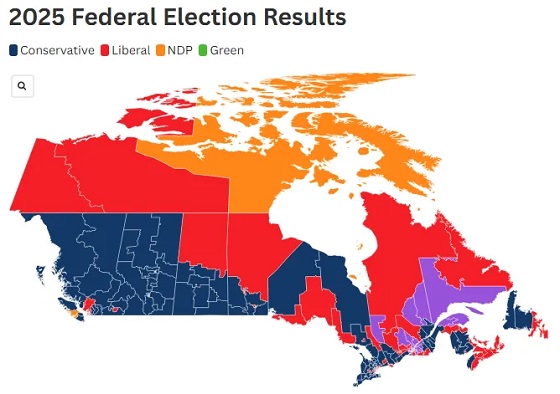
 2025 Federal Election2 days ago
2025 Federal Election2 days agoPost election…the chips fell where they fell
-

 espionage1 day ago
espionage1 day agoLongtime Liberal MP Warns of Existential Threat to Canada, Suggests Trump’s ’51st State’ Jibes Boosted Carney
-
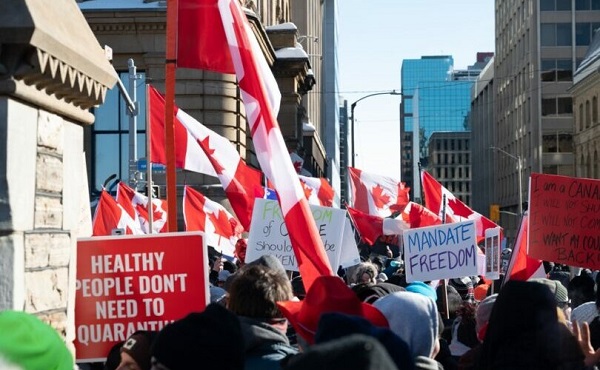
 COVID-192 days ago
COVID-192 days agoFreedom Convoy leaders’ sentencing judgment delayed, Crown wants them jailed for two years
-
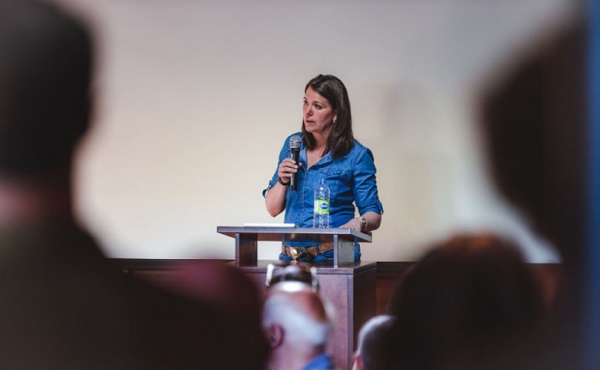
 Alberta2 days ago
Alberta2 days agoPremier Danielle Smith hints Alberta may begin ‘path’ toward greater autonomy after Mark Carney’s win
-
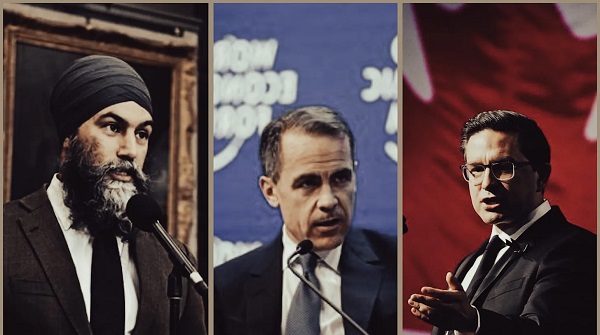
 2025 Federal Election1 day ago
2025 Federal Election1 day agoNDP Floor Crossers May Give Carney A Majority







